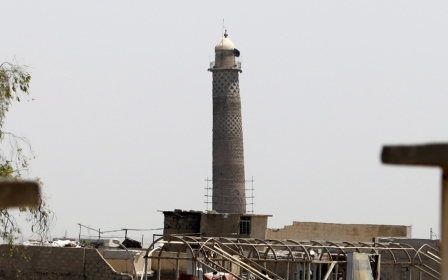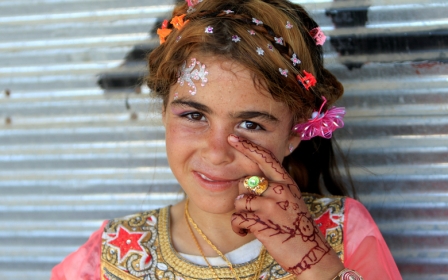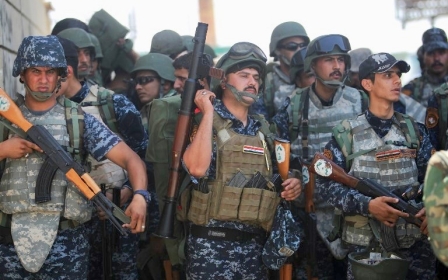Iraqi PM hails end of 'Daesh state' with capture of Mosul mosque from IS
Iraqi Prime Minister Haider al-Abadi hailed the "end of the Daesh state" on Thursday after Iraqi forces captured the wrecked historic mosque of Mosul in which Islamic State leader Abu Bakr al-Baghdadi proclaimed himself "caliph" three years ago.
"The return of al-Nuri Mosque and al-Hadba minaret to the fold of the nation marks the end of the Daesh state of falsehood," Abadi said in a statement, referring to IS by an Arabic acronym.
He said Iraqi forces would continue to hunt IS fighters "to kill them and detain them, down to the last one".
Brigadier General Yahya Rasool had earlier announced on state TV that "their fictitous state has fallen" after the military announced its counter-terrorism forces were in control of the Nuri mosque and the remnants of al-Hadba minaret.
Taking the Grand al-Nuri Mosque hands a symbolic victory to the Iraqi forces that have been battling for more than eight months to capture Mosul, the northern city that served as Islamic State's de facto capital in Iraq.
The insurgents blew up the medieval mosque and its landmark leaning minaret a week ago, as US-backed Iraqi forces started a push in its direction.
Their black flag had been flying on al-Hadba, the ''hunchback'' minaret, since June 2014.
Last Tuesday, the forces had encircled the militant group's stronghold in the Old City, the last district under their control in Mosul.
Baghdadi proclaimed himself "caliph", or ruler of all Muslims, from the pulpit of the mosque on 4 July 2014, after the group's fighters overran parts of Iraq and Syria.
Iraqi officials had privately expressed the hope that the mosque could be captured in time for Eid al-Fitr, the festival marking the end of Ramadan, the Muslim fasting month.
The fall of Mosul would, in effect, mark the end of the Iraqi half of the "caliphate" which was the largest they had control of in both Iraq and Syria, but IS would continue to control territory west and south of the city.
The mosque's destruction came during the holiest period of the Islamic holy month of Ramadan, its final 10 days.
The night of Laylat al-Qadr falls during this period, marking when Muslims believe the Quran was revealed to prophet Muhammad.
Baghdadi has left the fighting in Mosul to local commanders and is believed to be hiding in the border area between Iraq and Syria, according to US and Iraqi military sources.
The mosque in Mosul's Old City was the latest in a long list of priceless heritage and historical monuments destroyed by IS during its three-year rule over swathes of Iraq and Syria.
The minaret, which was completed in 1172 and had been listing for centuries, is featured on Iraq's 10,000-dinar banknote and was the main symbol of Iraq's second city - giving its name to countless restaurants, companies and even sports clubs in Mosul.
After seizing Iraq's Sunni Arab heartland in June 2014, IS reportedly rigged the Hadba with explosives but was prevented from blowing it up by the local population. The jihadists consider the reverence of objects, including of such sites, as heresy.
IS has destroyed several key heritage sites in Mosul, including the main museum and shrines to Jonah and Seth.
New MEE newsletter: Jerusalem Dispatch
Sign up to get the latest insights and analysis on Israel-Palestine, alongside Turkey Unpacked and other MEE newsletters
Middle East Eye delivers independent and unrivalled coverage and analysis of the Middle East, North Africa and beyond. To learn more about republishing this content and the associated fees, please fill out this form. More about MEE can be found here.




